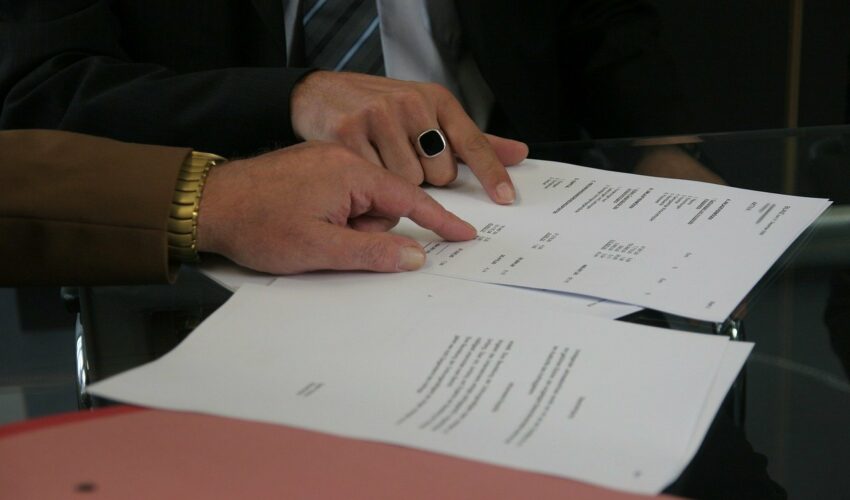When a shareholder in a company dies, ownership of their shares may be transferred to whoever inherits them under the terms of the deceased shareholder’s will, if one is in place, or under the intestacy rules if there is no Will. However, this will be subject to provisions in the company’s articles of association and shareholders’ agreement (if one exists), which take precedence and may include restrictions on the transfer of shares. Dealing with such complex matters during times of emotional turmoil is often very difficult and distressing, so it is important to plan ahead to ensure the correct procedures are in place. In this article, transfer of shares on death of shareholder UK, we take a look at the process and mechanism involved.
Free Initial Telephone Discussion
For a free initial discussion on how we can help you deal with the transfer of shares from a deceased person, get in touch with us today. We will review your situation and discuss the options open to you in a clear and approachable manner. Early expert legal assistance can help stop matters escalating, saving you money and also avoiding the stress of dealing with these issues on your own. Simply call us on 0345 901 0445 or complete our online enquiry form and a member of the team will get back to you.
What happens when a shareholder dies?
If specific provisions have not been included in the articles of association of a company or in a shareholder or partnership agreement, the shares of a deceased business owner will pass in accordance with the deceased’s Will or under the intestacy rules.
This may mean family members with no knowledge of the business being required to become involved in unfamiliar business decision-making at a time when they are least likely to cope. They will be faced with having to apply for a Grant of Representation and completing inheritance tax forms which will involve them needing to insist on a valuation of the business, all of which takes time and expense. This is rarely the best way to deal with this sensitive matter.
What happens if a sole shareholder dies?
If a company uses the standard articles and has a sole director and shareholder, then while the shares will pass to their personal representatives, there will be no surviving officer who can manage the company.
Cross option agreements
An additional or alternative protective mechanism is to put in place what is known as a cross option agreement. Under this sort of agreement, business owners grant each other options which will come into effect on a death. Both parties may then exercise the cross option agreement which means that:
- The deceased business owner’s personal representatives can ‘force’ the surviving co-owners to buy the deceased’s interest in the business and/or
- The surviving business owners can ‘force’ the personal representatives to sell the deceased’s interest to them.
Cross option agreements are often supported by a life policy for each owner that is held in trust for the benefit of the others. The policy pays out on death and enables the surviving business owner (or the business itself, assuming that there are distributable reserves) to buy the deceased’s interest in the business without causing a financial crisis for the business and at the same time releasing immediate cash to the deceased’s family. The agreement will set out how the value price of the interest is to be ascertained which is often agreed to be the amount of the insurance cover. Consequently, the policy needs to be reviewed on a regular basis
What is the process of transferring shares?
This is subject to the articles of association which often have clauses detailing the procure to be followed upon the death of a shareholder. Consequently, the articles need to be checked carefully.
Articles often provide the executors with two options:
- choose to become a shareholder themselves; or
- transfer the shares directly to a nominated person of their choice (subject, of course, to any restrictions on transfer as discussed above).
In both cases, articles would normally require the executors to provide the company’s directors with “such evidence of entitlement as to shares as the directors may properly require”. That would typically be the grant of confirmation (or probate).
Where the executors are transferring shares, a stock transfer form, completed by the executors, will be required. The executors would certify on the back of the form that no stamp duty is payable.
A resolution of the company’s directors approving the share transfer would be required. The deceased’s share certificate would then be cancelled, a new one issued in the name of the executors or transferee, and the company’s registers would be updated.
How we can help
We have a proven track-record of dealing with the intricacies of transferring shares upon the death of a shareholders. We will guide you through the process and ensure all checks are carried out swiftly and efficiently and we firmly believe that with the right solicitors by your side, the entire process will seem more manageable and far less daunting.
How to Contact our Corporate Solicitors
It is important for you to be well informed about the issues and obstacles you are facing. However, expert legal support is crucial in terms of reducing risk, saving you money and ensuring you achieve a positive outcome.
To speak to our Corporate solicitors today, simply call us on 0345 901 0445, or allow a member of the team to get back to you by filling in our online enquiry form . We are well known across the country and can assist wherever you are based. We also have offices based in Cheshire and London.
Disclaimer: This article provides general information only and does not constitute legal advice on any individual circumstances.




Leave a Reply
You must be logged in to post a comment.